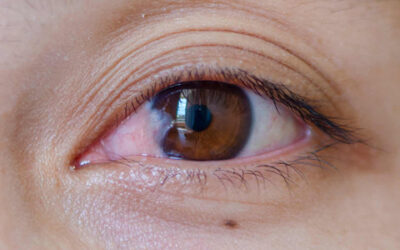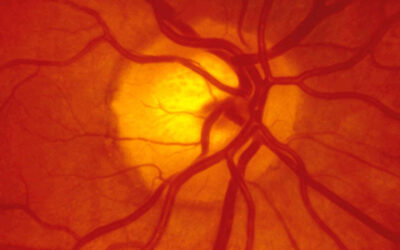Eye Conditions
Optometrists treat and diagnose a wide range of vision and ocular health problems, and can provide advice, treatment plans or referrals to manage all manner of concerns.
Whether you need an eye exam to update your spectacles, or have a question or are experiencing symptoms, pain or visual disturbances, a full eye exam is recommended. Early detection and treatment where indicated can prevent permanent vision loss.
Some of the most common eye conditions include:
Age-Related Macular Degeneration
Age-related macular degeneration (AMD) is an eye disease that can cause the central vision to appear blurry. It happens when advancing age results in damage to the macula — the central part of the retina (the light-sensitive tissue at the back of the eye) that is responsible for your central vision. Macular degeneration is more likely in smokers and is a common cause of vision loss for those over 65. Although it doesn’t result in complete blindness, it can make it difficult to accurately read, drive, or see facial expressions. As macular degeneration may progress slowly over time with no significant symptoms at first, it is important to get regular eye exams to detect it as early as possible so that your eye care professional can discuss options to prevent further vision loss, which may include certain vitamins and minerals, diet and injections or laser treatments – in advanced cases.
Cataracts
Cataracts are cloudy patches located within the lens of your eyeball. In people over 80 years old, they’re one of the most common causes of vision loss, as well as in those who have experienced significant exposure to harmful UV rays, smoking, or diabetes. The symptoms of cataracts may not be noticeable at first. Still, your vision may gradually become blurry, hazy, or less colourful over time, and you may find difficulty seeing the television or doing everyday activities. The good news is that cataracts can often be effectively removed with surgery, which can correct your vision by inserting an artificial lens in your eye. Through a comprehensive eye examination, optometrists can pick up on cataracts even in their early stages.
Conjunctivitis
Conjunctivitis, commonly known as pink eye, is a common eye disease that can cause notable redness and swelling in both the whites of your eye and the inside of your eyelid. Your eye may also feel itchy and painful, or have a sticky or watery discharge that may clump your eyelashes together, especially upon waking in the morning.
Pink eye can be triggered by allergens such as animals or pollen, bacteria, or viruses, and can be very contagious. To prevent spreading between family members and others, it’s important to wash your hands often and avoid sharing items like sunglasses, towels, or makeup. Fortunately, many cases of pink eye will resolve on their own, however other types may require specialised treatment from an optometrist. It’s recommended to see your optometrist if the symptoms continue to get worse, impact your vision or involve pain. Babies with suspected pink eye should be immediately seen by a doctor.
Diabetic Retinopathy
Diabetic retinopathy is an eye disease that can occur in people with diabetes, which can cause vision loss and blindness by affecting the blood vessels in your retina, the light-sensitive layer of tissue at the back of your eye. It’s important to get a comprehensive dilated eye exam at least once a year if you have diabetes, as diabetic retinopathy often does not have any obvious symptoms in the early stages, but early treatment may help you to prevent further damage and improve your vision. To prevent this condition and delay vision loss, we recommend managing your diabetes by staying physically active, eating healthily, and taking diabetic medication, as well as coming in to see our optometrists who can guide you towards treatment for more advanced cases which may include laser treatment or surgery.
Glaucoma
Glaucoma is the name for a collection of eye diseases that can cause vision loss and blindness over time by damaging the cells in the nerve in the back of your eye called the optic nerve, which sends visual information from your eye to your brain. Glaucoma is more common in people aged over 60 years, and at first, it doesn’t tend to have any symptoms, so regular screening is vital.
If untreated, you may begin to notice that you can’t see things off to the side, or in your peripheral vision. Although there is no complete cure, early treatment can often prevent damage and prevent blindness. Treatment may involve eye drops, medication, and surgery.
Pterygium (Fleshy Growth)
A pterygium, pronounced “te-ridge-e-um” is a vascular, fleshy growth of tissue in the corner of the eye that is often triangular in shape. It can develop when you’re exposed to high amounts of ultraviolet (UV) light, and it’s most common in people who live in sunny areas or who spend a lot of time outdoors such as farmers, skiers and fishermen. It can grow very slowly, but eventually could progress over the cornea, impacting vision. Symptoms include burning, itching or watery eyes. In some cases, the pterygium may need to be surgically removed. It is important that surgery is not delayed, as once it grows over the cornea, permanent scarring can occur.
Amblyopia
Commonly known as having a lazy eye, amblyopia occurs in infancy or early childhood, and usually affects one eye. Symptoms can include a wandering eye or eyes that may not appear to work together. Amblyopia is caused by a misalignment of the eyes, or a difference in refractive error between the two eyes, leading to one eye receiving a blurred image. As a result, the brain starts to rely more on the other, non-affected eye, causing the affected eye to weaken over time. If left untreated, amblyopia can cause permanent vision loss in the affected eye. However, if detected early, it can often be treated successfully with corrective glasses, contact lenses, or vision therapy. In some cases, patching the stronger eye to force the weaker eye to work can also be effective.
Retinal Detachment
A retinal detachment happens when your retina, the light-sensitive layer of tissue in the back of your eye, is pulled away from its usual position at the back. You may not notice any symptoms, but in some cases, you may not be able to see as clearly as normal, and you may notice other sudden symptoms, including:
- A lot of new floaters (small dark spots or squiggly lines that float across your vision)
- Flashes of light in one eye or both eyes
- A dark shadow or “curtain” on the sides or in the middle of your field of vision
Retinal detachment is a medical emergency. If you have symptoms of a detached retina, it’s important to contact your optometrist or the emergency room immediately.
Retinal detachments can occur spontaneously especially in short sighted people. Additionally, they can follow head trauma. For this reason, it is important to get checked if this happens, even if asymptomatic.
UV Damage
Like our skin, the cells in our eyes can be easily damaged from the harmful effects of ultraviolet (UV) radiation over time, whether from sunlight, blue light from screens, or even indoor lighting. It can cause damage to your retina – the back surface of your eye, and your lens – a clear layer within your eyeball that helps to focus your vision.
The longer you are exposed to UV rays, the more intense your symptoms are likely to be, including pain, twitching, swelling, redness, blurry vision, sensitivity to light, or watery eyes. Fortunately, mild cases of UV damage will heal without treatment. Still, repeated exposure can increase your risk of developing eye and eyelid cancers, corneal sunburn, cataracts, macular degeneration, and tissue growth on the eye’s surface.
Alongside your yearly eye exam, we recommend making an appointment with your optometrist to order your own pair of UV-blocking or blue light sunglasses. We have a wide range of protective eyewear and contact lenses available for adults and children and can custom-build these to meet your prescription needs.
No matter your concern, we’re here to help. To book your comprehensive eye exam with one of our experienced team members, contact one of your local clinics.




